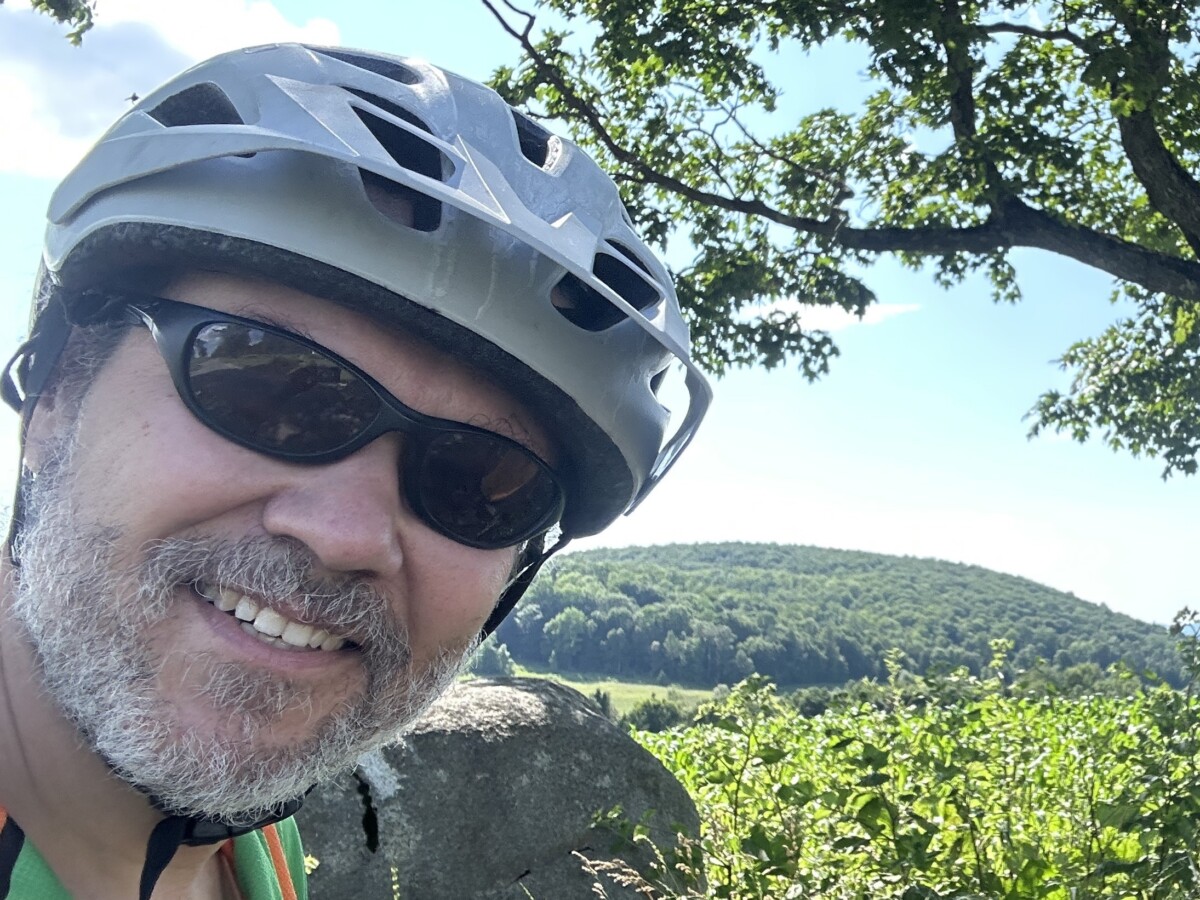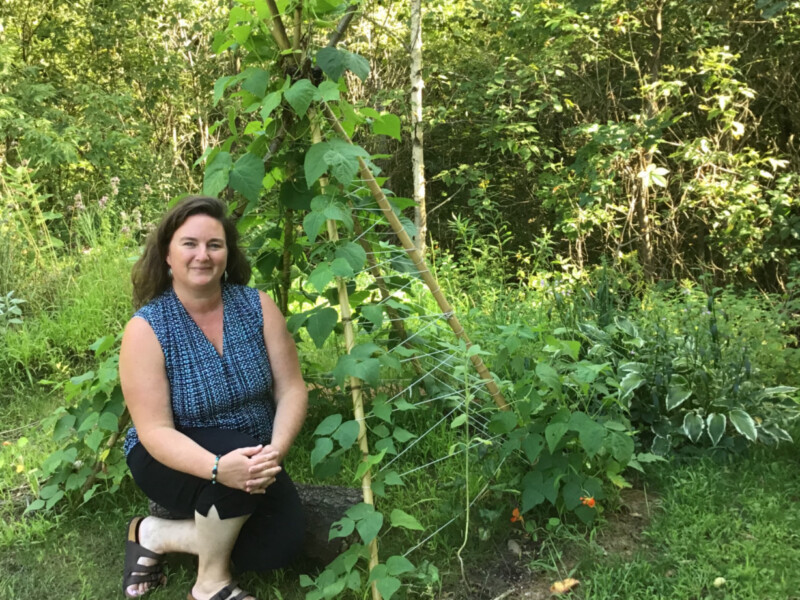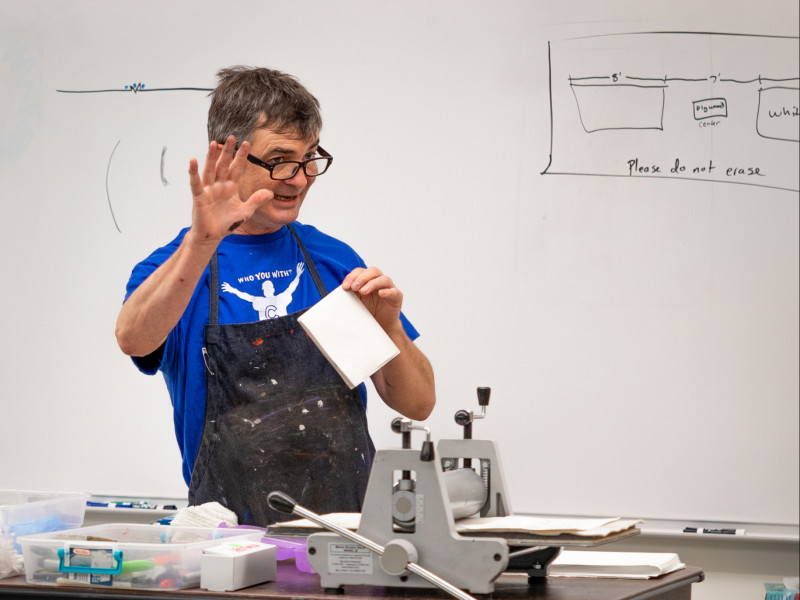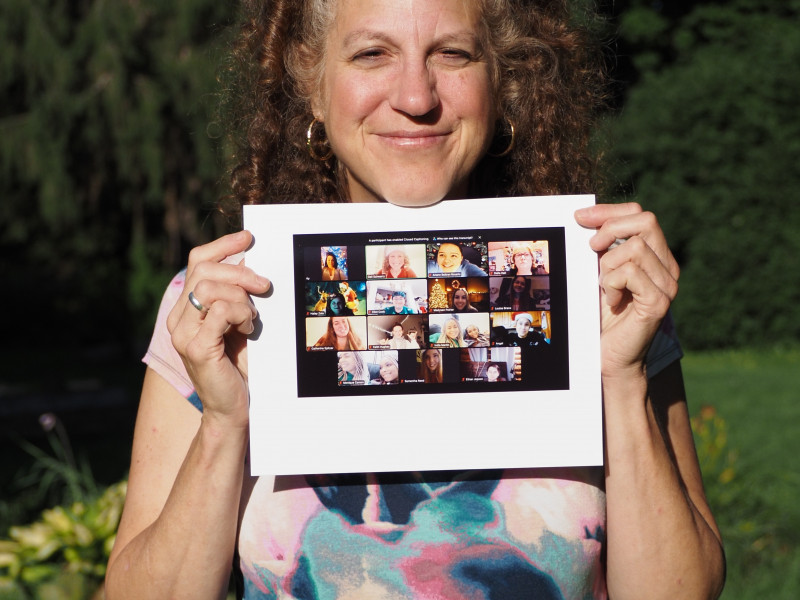
Many CCV graduates return to the College as faculty members. They bring a unique perspective to the classroom.
“I knew I wanted to get back to CCV,” says Dana Lesperance, remembering the years between taking CCV classes and teaching them. “Since starting at CCV, education has become a central piece of my life—and seeing the opportunity it brought for me, I really wanted to give other students that perspective.”
Lesperance is a first-generation college graduate. After serving four years in the Marines, he started work as an officer for the Vermont Department of Corrections, and quickly realized that a college degree would help him advance his career. “I share this with my students: I was crazy nervous. I laugh now because I was 31 but I felt old when I went to CCV. I was really nervous because I wasn’t that great of a student in high school. My first class was Dimensions of Learning and I absolutely loved it…I grew very quickly as a learner. I guess I was ready.” During his time as a CCV student, he continued working for Corrections and served in the Vermont Air Guard. He fast-tracked his CCV degree with a bundle of credits from the Assessment of Prior Learning class, then moved on to both a bachelor’s and master’s degree.
His education has indeed helped him advance his career. Today he is head of school for Community High School of Vermont and manages Corrections education programs, including the newly launched post-secondary education initiative, offered to Corrections staff and the incarcerated population in partnership with CCV.
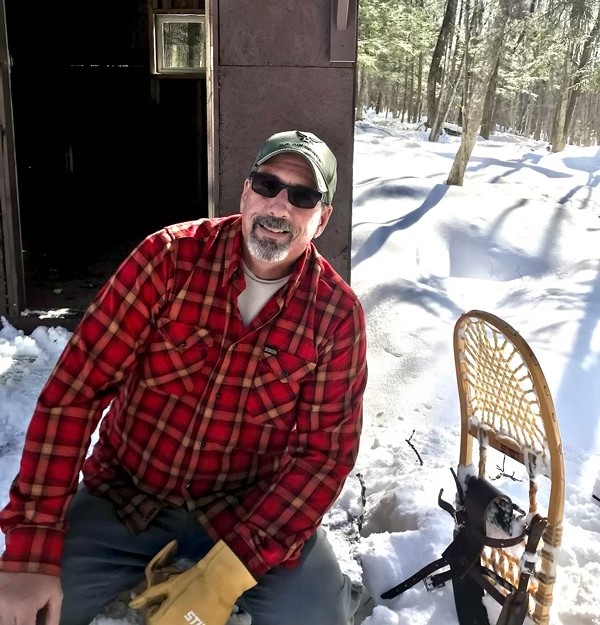
Lesperance isn’t the only faculty member with a CCV degree—there’s a whole group of graduates who are now teaching the next generation of students. Among them are Ginger Gellman and John Ryan, both online instructors. Gellman was a CCV staff member for a dozen years, serving as a coordinator of student advising in Rutland, a job she held while taking CCV classes. “I have a bachelor’s and a master’s degree in other fields, but earning the associate in visual arts at CCV was the hardest degree I ever earned,” Gellman shared. As a staff member and now an instructor, she can relate to the experience of being a busy adult student. “It’s a bit different to stay committed to coursework for so many years amongst competing priorities of work and family.”
Two years after finishing her degree, Gellman started teaching Two-Dimensional Design. “I couldn’t be more thrilled to teach this course,” she wrote in an email. “I love breaking down abstract concepts into actionable techniques, and the real payoff is when students know they have new tools to develop art styles they like. The students are enthusiastic and supportive of each other. I learn from them every week.”
John Ryan’s path to a CCV degree was more circuitous. He had attended community college in the South after high school, but it didn’t work out. After moving to Vermont, he thought “maybe I can try this again. So I took an online class—Vermont History—and I was like ‘wow, I’m really into history and this is really cool.’” Like Lesperance, Ryan gained credit for his previous experiences through Assessment of Prior Learning before moving on to a bachelor’s program at Johnson State College. He was mentored by the late John Christensen, a foreparent of CCV’s online learning program. “‘I think I really like this teaching thing,’ Ryan remembers telling Christensen. He goes, ‘I’ll tell you what, you go get your master’s degree and come see me.’” So Ryan completed a master’s degree in the humanities with a concentration in history. “And sure enough, John hired me [to teach at CCV].”

After working a series of jobs Ryan called ‘soulless,’ teaching at CCV “felt like you were doing good…that was a big shift, just having a job that felt like it had purpose.” Ryan took Christensen’s advice and got involved outside the classroom. He has served on the Faculty Advisory Committee on Technology and the Teaching & Learning Technologies committees, and he played a key role in helping fellow faculty transition to online learning at the onset of Covid. He still teaches the Intro to Online Teaching course each semester.
But it’s working with CCV students he finds most rewarding. “I think we give a lot of opportunity to people that might not otherwise have it,” says Ryan. “Because of the model that we use, because of the economics of it, because it doesn’t cost an arm and a leg, we serve a much broader part of the population.”
Lesperance, Gellman, and Ryan have been in their students’ shoes—and that makes all the difference. “I think it’s empowering [for them] to hear that I wasn’t the best student in high school, and I have to read things two or three times to really understand them, and I get that things are challenging,” says Lesperance. “You learn that kind of work/life balance, and I think that’s empowering for CCV students to feel that you don’t have to be the smartest academic. It’s about the drive, the grit, and the opportunities it brings you.”

